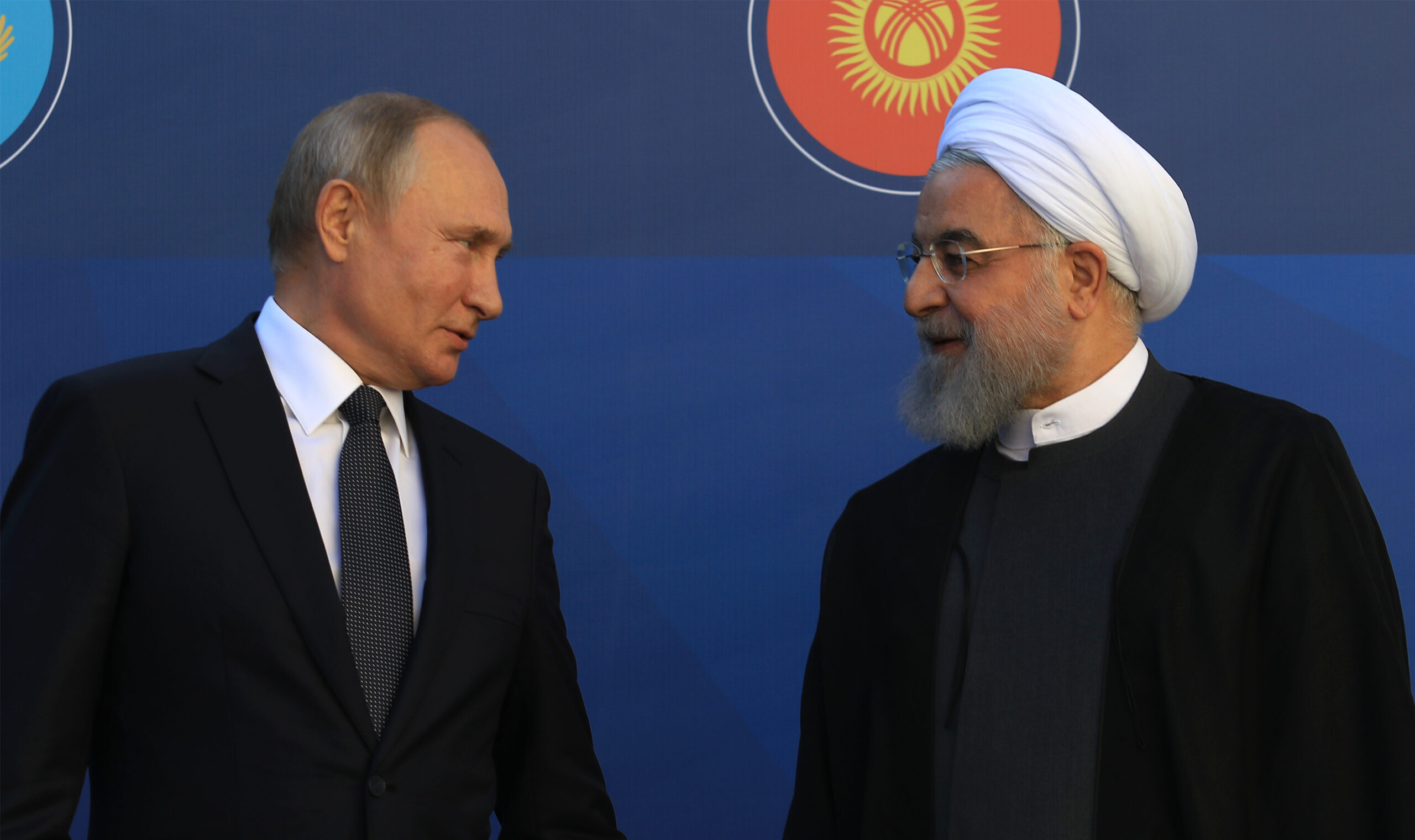To Solve Iran, Work with Russia
President Donald Trump should pursue Vladimir Putin’s offer to assist with nuclear negotiations.

Last week, Russian President Vladimir Putin told President Donald Trump he was ready to assist U.S. efforts to negotiate a new nuclear deal with Iran. The offer presents a crucial opportunity—not only on Iran, but global security broadly.
Amid continued tensions between Washington and Moscow, not least on the dangerously escalating war in Ukraine, cooperation on Iran’s nuclear program could serve two vital purposes, in addition to blocking Tehran from building a bomb: 1) delivering on Trump’s pledge to avoid new wars and 2) fostering much-needed dialogue between two adversarial great powers.
That this opportunity is seen seriously in Moscow is underscored by the remarks of Russia’s influential deputy foreign minister Sergey Ryabkov, also the country’s chief negotiator on Iran. Speaking to the state news agency TASS on Sunday, Ryabkov noted that “these days, Washington’s much more serious in its intent toward concluding [a] deal with Tehran on mutually acceptable terms.”
He emphasized Russia’s “efforts aimed at assisting in the energetic search for the necessary negotiated solutions” and found those to be achievable “with due reliance on international law, the principle of equitable and indivisible security, as well as with the carefully calibrated balance of interests and gradual progress which will allow to boost trust by observing the agreements achieved.” Ryabkov expressed hope that both the U.S. and Iran “fully realize this.”
Moscow has its own reasons to support a U.S.-Iran deal: As a member of the nuclear-weapons club, it isn’t interested in other countries, including Iran, joining it. Moreover, Moscow fears that a U.S.-Israeli military strike on Iran following a collapse of negotiations would weaken a key partner and further destabilize West Asia and Russia’s own southern borders.
Some analysts assess that Iran’s continued isolation from the West serves Russia’s interests by increasing Tehran’s dependence on Moscow. The lifting of sanctions on Iran would, by contrast, facilitate its re-integration into global markets and lessen its reliance on Russia. One particular worry for Moscow is that increased exports of Iranian oil would reduce the profitability of Russian hydrocarbons.
Yet, these misgivings do not outweigh the positive incentives for Moscow to facilitate a deal between Washington and Tehran. Any likely agreement would be a narrow non-proliferation deal, limiting potential losses to Russia. The depth of mutual distrust between the U.S. and Iran is such that a nuclear accord wouldn’t necessarily be a precursor to a broader normalization, at least in the short term. Besides, Washington’s European allies are doing everything they can to further alienate Iran, so Tehran would have an interest in maintaining strong ties with Moscow to counterbalance efforts to isolate it.
Perhaps most decisively, Russia sees its potential involvement in a resolution of the nuclear standoff with Iran as a way to boost its image as an indispensable diplomatic power broker, a reputation that could be leveraged to improve relations with Washington—one of Putin’s key objectives. All these factors should make Moscow confident that, on balance, it has more to win than lose from helping facilitate a negotiated resolution to the U.S.–Iran standoff.
For Moscow to be able to play that role, however, a fundamental condition needs to be met: The U.S. needs to set realistic objectives for a new deal with Iran. Trump’s public insistence on “zero enrichment” of uranium is a road to failure. Tehran’s insistence on domestic enrichment, couched in the language of national pride, scientific progress, and resistance to foreign sanctions, may puzzle American negotiators, but that’s how Iran’s hardliners and moderates alike see the issue, and the country’s leaders have repeatedly signaled that this is the thickest of their red lines.
Russia is less likely to assist in the talks with Iran if it sees the American bottom line as unrealistic and unattainable. However, Moscow can play a constructive role if Washington shows flexibility in considering other options to block Iran’s potential pathways to nuclear weapons. Tehran, for its part, has shown openness to discussing “everything”—enrichment levels, stockpiling, verification, a regional consortium, etc.—provided the domestic enrichment rights are safeguarded.
Within a more realistic framework, Moscow could help Washington and Tehran reach a deal by acting as a custodian for Iran’s surplus of low-enriched uranium. That would help ensure that Tehran does not accumulate a dangerous stockpile. Given Russia’s technical capabilities and existing nuclear infrastructure, this arrangement is both practical and verifiable.
Tehran seems open to such an arrangement. In fact, the idea was voiced repeatedly at the recent Tehran Dialogue Forum, organized by the Iranian foreign ministry–affiliated Institute for Political and International Studies, which gathered political leaders, diplomats, academics, and nuclear scientists from around the globe.
Subscribe Today
Get daily emails in your inbox
Beyond the technical benefits of nuclear talks, U.S.-Russia engagement on Iran could help thaw their own bilateral relations at a time of dangerous hostility. Even limited cooperation on nonproliferation establishes a channel for communication, reducing the risk of miscalculation in other areas, such as NATO-Russia tensions or the raging war in Ukraine.
History shows that adversarial powers can still collaborate on issues of common interest—the U.S. and Soviet Union, for example, worked together during the Cold War on arms control, despite their ideological divide and mutual antipathy. Likewise, today a transactional partnership on Iran could prevent further deterioration of regional stability.
If Washington and Moscow can find common ground on Iran, it may not resolve all their differences, but it would prove that even rivals can cooperate when the stakes are high enough. In a world teetering toward great power conflict, that alone would be a gain for diplomacy, and for global peace.